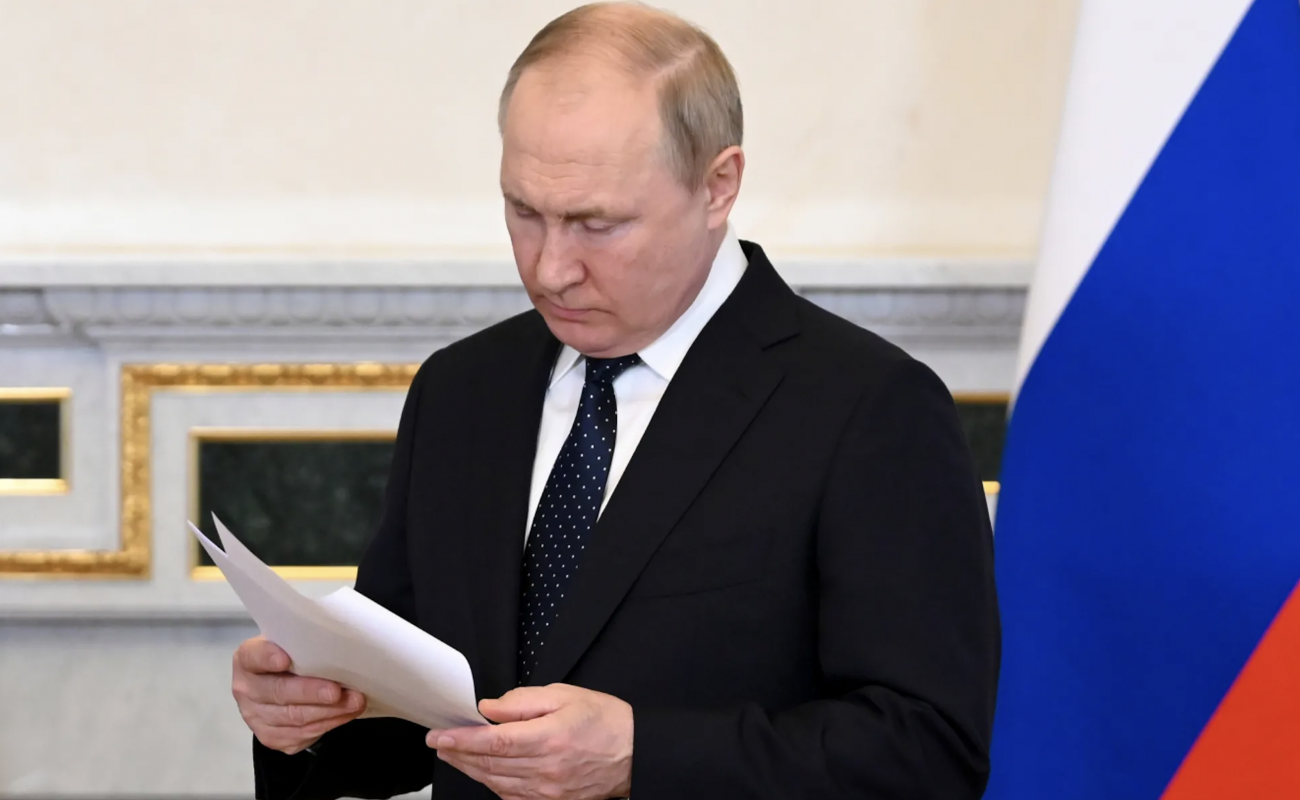Putin's strategy: How long can Russia prolong the war

Does the Russian Federation have a strategy? Is Russia able to fight "for a long time"? Why are negotiations not profitable for Putin? Blogger Yuri Bohdanov tries to find the answer to these most important questions.
Many more months of war await us. Definitely more than 12. And that's why we have to take a very responsible look at the enemy and the war ahead.
But the desire to create an "informative alternative" by inciting panic and despair does not paint the right picture. And it hurts. That is why we briefly analyze theses, which are repeated in Ukraine by different people in different circumstances, following Russian narratives.
Putin has a STRATEGY. Extend the war, wait for us to fight, the west to get tired, etc.
The Russian Federation has plenty of resources to wage war "for a long time". Because weapons, money, China, a zombified society - they will add what is needed.
They want to force the Ukrainians to capitulate and that's why they limit aid. Because everyone wants to trade with Russia again as soon as possible. Or the opposite variant — for Putin, everything is going according to plan and that's why he doesn't want negotiations.
STRATEGY.
Dictatorships, in principle, live from event to event, balancing, adapting to reality, because otherwise they would lose relevance with every change in trend.
Dictatorships start wars "because they can". Conjuncture, faith in one's own greatness and character make the thesis "WAR WILL BE QUICK (and will give legitimacy)".
When war doesn't go according to plan, the plan becomes "today you die and then I die". The intention to stretch the time to the maximum is the hope that the cards will line up again. So Putin's "strategy" is a casino game.
At the same time, propaganda and the dictator himself will convince everyone that he has a plan. After all, what is a wise leader without a plan?
RESOURCES.
We have dispelled the myth of the infinite resources of the Russian Federation. So in short.
At the start, the possibilities of Ukraine and the Russian Federation were incomparable. Economy — X10, military budget for the last 20 years — X25-30. As for aviation, navy and missiles, it is almost "dry". But the factor of allied assistance and the greater efficiency of Ukraine played a role — the trend of superiority of the Russian Federation is inevitably fading.
Yes, you don't have to wait for the Russian Federation to recover. They will add as much as they can. There will be those who will work more or less efficiently.
But the potential of the Russian economy is limited. There are no more "tractor factories" that can start producing tanks. There are no engineers. The Russian Federation is losing more equipment than it can produce. The only thing saving their economy from collapse now is military rule and the head of the Central Bank of Russia, Elvira Nabiullin.
People. Yes, there are more Russians than Ukrainians. This factor is dangerous. However, Putin's fear of a new wave of mobilization is not in vain.
Ukraine responds to the Russian concept of war by attrition - in particular, it creates an opportunity to attack the enemy's deep rear. You can hear a lot of gleeful whining about us doing nothing and producing nothing, but that's simply not true.
Can the Russian Federation go to war for long? More than two years? Theoretically, it can. In practice, it is unlikely that the regime will be able to withstand a war of such intensity, if Western aid is at least the same. And it tends to increase.
NEGOTIATIONS
Putin does not want negotiations. But not because he HAS A PLAN or WINS. The reason is different. Such a dictatorship is built on balancing and adapting to the situation. This gives (sometimes) an advantage in tactics, but almost eliminates the possibility of implementing strategies. Because there is no institution. And the war for the regime is the new balance. Under whose conditions you can preserve the environment, maintain the regime of dictators and total censorship. For now, it has enough resources and legitimacy. That is, to new painful defeats.
As long as they can, they will continue. Not because they have a plan to win. And because they are afraid of the risk of imbalance that will occur if they go for "total mobilization" or admit defeat. What we saw on the example of Prigozhin's rebellion and especially the number of people from the trenches who sympathized with him. That's why the mobilization is delayed. That's why they fear the return of the soldiers, because the conqueror who returned home with a defeat is (literally) a factor in some future revolution.
They will lose in the end. Another question is whether their defeat coincides with the Ukrainian victory.
